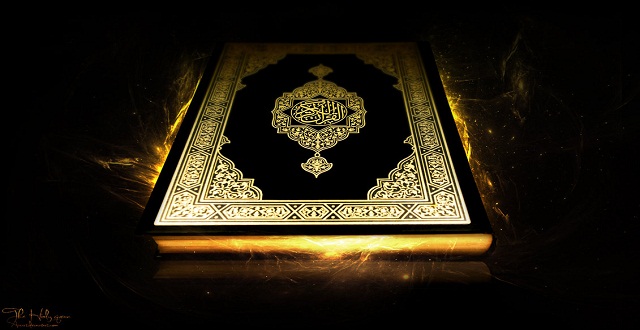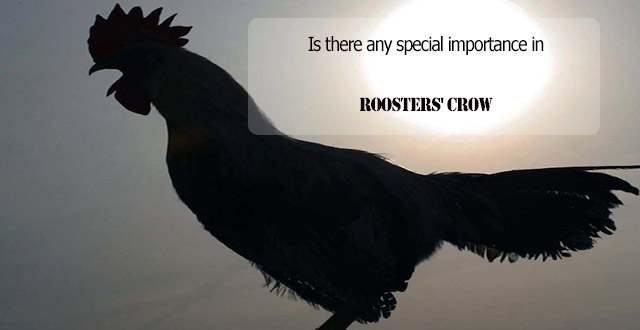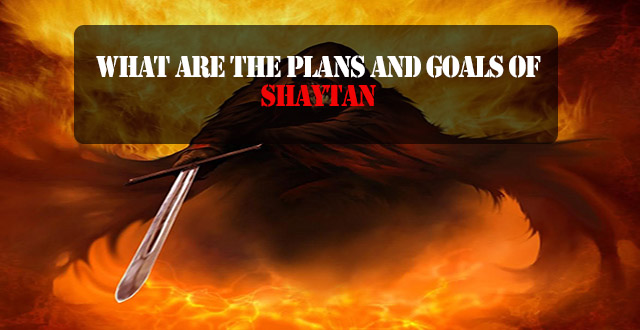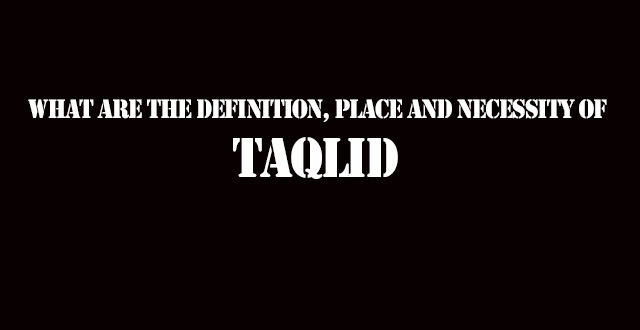
We must know that first: the names of the Imams’ have been mentioned in the words of the prophet of Islam (pbuh), especially Imam Ali’s name that was mentioned by the prophet as his successor many times. One of these occasions was at the beginning of his prophetic mission, when he conveyed his message to his tribe and relatives, where he said: “The first person that believes in me will be my Wasiyy (vicegerent), minister and successor.” And no one but Imam Ali responded in the affirmative. Finally the prophet said to him: “After me, you will be my wasiyy (vicegerent), wazir (minister) and my khalifah (successor).”[1]
Another example is the hadith of Ghadir in which the prophet clearly states: “من کنت مولاه فعلى مولاه”[2] which means: “Whoever that I am his master, Ali is his master.” There is also the hadith of “Manzilah” (position/station) in which the prophet said to Imam Ali: “انت منى بمنزلة هارون من موسى ،الاّ انه لانبى بعدى”[3] Most of the prophet’s ahadith in regard to Imam Ali’s Imamate and Caliphate are Mutawatir (recurring so much from different narrators that one becomes totally sure that the hadith can’t be made up) and most Sunni and Shi’a books have mentioned this fact.[4] In another hadith, when speaking to Jaber Ibn Abdullah Ansari, the prophet names the Imams from Imam Ali to Imam Mahdi.[5]
Therefore, we must keep in mind that even though the Imams are not named in the Quran, but the prophet, whose words and sayings are all true and revealed to him[6], has mentioned their names and emphasized on their Imamate and Caliphate.
Second: Despite the fact that the Quran does not mention the name of Imam Ali, but his Imamate has been pointed out in Quranic verses. The majority of Quranic commentators from among Sunnis and Shi’as admit that verse 55 of Surah Ma’idah was revealed in regard to Imam Ali and that this verse is solely speaking of him.[7] The verse is as follows: “انما ولیکم الله و رسوله و الذین آمنوا یقیمون الصلاة و یؤتون الزکاة و هم راکعون” which means: “Only God, His Messenger, and the true believers who are steadfast in prayer and pay alms, while they kneel during prayer, are your guardians.”
Knowing that in Islam there is no specific guideline about paying Zakaat during Ruku’, it is obvious that this verse is pointing out an incident that only took place once. This incident transpired when Imam Ali was performing Ruku’ and a needy person came to his presence and asked for help. The Imam pointed to his finger and the poor man came and took his ring and left.[8] This is why the verse says: “Only[9] God, His Messenger, and the true believers, are your guardian” and no one else has authority over you.”
Up to this point we explained that the names of the Imams have been mentioned in the words of the prophet and the Quran has equivocally mentioned the Imamate of them in such a way that if a fair researcher is seeking the truth, he will understand, through the least research and inquiry, that the prophet’s opinion in regard to caliphate and imamate after him, was for Imam Ali and his children to be his successors.
As far as why the Imams have not been named in the Quran, there can be two reasons:
1- The Quran tends to mention different issues using general terms and explain them in general rules and principles, not to explain every little issue and detail as this method has been employed by the Quran when explaining many Usul (pillars of religion) and Furu’ (branches of religion).
This answer is expressed in a hadith from Imam Sadiq,[10] and to back his explanation, the Imam gives three examples. The first example is Salat (prayer). The Quran has mentioned the concept of prayer in a general manner and has not expounded how each prayer is performed. However, the prophet explained for the Muslims how prayers should be performed and how many Rak’ats each of them consists of. The second example is Zakaat which the Quran only mentions as a general principle in Islam. Once again it was the prophet that explained what things Zakaat applies to and what the Nesab (taxable limit) of each is. The third example was Hajj which has solely been considered wajib in the Quran, and it was the prophet that explained exactly how to perform it.[11]
Therefore, to expect the Quran to mention the details to every issue, no matter how important, is not reasonable, and when observing the issue of Wilayah and Imamate, if the names of each of the Imams are not mentioned in the Quran, this cannot constitute a reasoning to reject the school of thought of the Ahlul-Bayt, the same way one cannot perform Dhuhr prayer with two Rak’ats just because of the excuse that the Quran does not mention that it is comprised of four, or to not perform Tawaf (circumbulation) because the Quran does not say it should be done seven times in Hajj.
2- In regard to controversial issues like this (Imamate) to which there is a great possibility of objection and opposition, it is better for the Quran to explain the issue equivocally, because there is great chance that the dispute in regard to the Imamate of Imam Ali would lead to a dispute about the Quran, and this is definitely not in the best interest of the Muslims. Of course, we must remember that when Allah says in the Quran: “انا نحن نزلنا الذکر و انا له لحافظون” (We Ourselves have revealed the Quran and We are its Protectors)[12] that one of the ways of protecting the Quran from alteration is to choose its words in a way that hypocrites among the Muslim community would lose their motives to alter the Quran, so that if a group or individual has a great motive to oppose Islam due to his desires, he would not change the Quran to what he desires. This way the value and sanctity of the Quran would remain preserved.[13]
The following are Shahid Mutahhari’s words when explaining the abovementioned answer: “The question about why the Quran has not mentioned Imam Ali’s name in regard to his Imamate and authority, can be answered in the following ways; first: The Quran tends to mention different issues using general principles second: Allah and his prophet did not want this issue, which carnal desires play a role in the outcome of, to be mentioned in this form; for they (the hypocrites) even tried to change and explain away what the prophet had said and claimed that he meant something else, meaning that even if there was a verse that would unequivocally state such a thing (mention Imam Ali’s name), they would still explain and interpret it in a different way. The prophet stated clearly that: هذا على مولاه How clearer and more unequivocal can the prophet say it?! However, there is a great difference between neglecting the clear statement of the prophet and neglecting a clear and straightforward verse of the Quran a day after the prophet’s demise. This is why I have mentioned this story in the introduction of my book “Caliphate and Wilayah” that during the time of Imam Ali, a Jew wanted to scold the Muslim community for the incidents that took place at the beginning of Islam’s inception (and it was truly a great means of scold and scorn); he said to the Imam: “ما دفنتم نبیکم حتى اختلفتم فیه” (You hadn’t even buried your prophet that there was a dispute about him among you). Imam Ali responded: “انا اختلفنا عنه لا فیه و لکنکم ماجفت ارجلکم من البحر حتى قلتم لنبیکم: اجعل لنا الها کما لهم آلهة. فقال: انکم قوم تجهلون” (We did not have a dispute about him, but rather about his command, however, your feet had not become dry from passing the sea before you asked your prophet to compromise your most fundamental belief of Tawhid and build you idols like the ones the inhabitants of the desert had.) Therefore, there is a great difference between what took place for us and what happened for you. We did not have a dispute in regard to the prophet himself, but rather our dispute was about his command and order. These two are very different in the eyes of those looking at Islam from an outer perspective; to say that after the prophet, they (those who denied Imam Ali’s (as) successorship) did so because of a misinterpretation (although this misinterpretation was deliberate) of the prophet’s words rather than saying they did so out of neglecting and disobeying something that the Quran had directly and explicitly ordained.[14]
In light of what was said, one can say that the main reason why the Imams’ names or at least Imam Ali’s name was not mentioned in the Quran was to protect the Quran from alteration, as the verses of Tat’hir[15], Tabliq[16] and Wilayah[17] are situated among verses related to the prophet’s wives and other rulings or commands of not befriending the People of the Book, verses which seemingly have nothing to do with the successorship of the Ahlul-Bayt and Imam Ali. However, a fair researcher with the least scrutiny can understand that these parts of the verses are separate from the rest of the verse and they have been placed in their respective locations for a specific reason.[18]
========================================
[1] Ibn al-Bitreeq, Al-Umdah, pp. 121 and 133; Seyed Hashem Bahrani, Ghaayat al-Maraam, pg. 320; Allamah Amini, Al-Ghadir, vol. 2, pg. 278.
[2] This hadith is Mutawatir and has been transmitted in Sunni and Shi’a books. The narrators of this hadith from the first to the fourteenth Hijri century have been mentioned sequentially in the book of “Al-Ghadir” and the most notable of them are 60 of the prophet’s companions that have narrated this hadith in Sunni books and their names are mentioned in those books. Also, in “Abaghaat” written by Mir Hamed Hussein, the Tawatur (being Mutawatir) of this hadith has been proven. See: Al-Ghadir, vol. 1, pp. 14-114; Ibn Al-Maghaazeli, Manqib, pp. 25-26; Mutahhari, Murteza, Emamat va Rahbari, pp. 72-73.
[3] Al-Umdah, pp. 173-175; Ahmad bin Hanbal, Musnad Ahmad, vol. 3, pg. 32; Al-Ghadir, vol. 1, pg. 51; vol. 3, pp. 197-201.
[4] In regard to proving the tawatur of the ahadith relating to Imam Ali’s Imamate much effort has been made in the books of “Al-Ghadir” and “Abaghat”. Fazel Qushji does not deny the tawatur of some of these ahadith. See: Sharhe Qushji bar Tajridul-E’teqaad, Khajeh Tusi.
[5] Muhammad bin Hasan Hurr Ameli, Ithbaat al-Hudaat, vol. 3, pg. 123; Suleiman bin Ibrahim Qanduzi, Yanabi’ al-Mawaddah, pg. 494; Ghayat al-Maraam, pg. 267, vol. 10, quoted by Misbah Yazdi, Amuzeshe Aqa’id, vol. 2, pg. 185.
[6] “و ما ینطق عن الهوى ان هو الا وحى یوحى” Najm: 3, 4.
[7] Please refer to different commentaries under the verse being discussed here, such as: Fakhruddin Razi, Al-Tafsir al-Kabir, vol. 12, pg. 25; Tafsir Nemouneh, vol. 4, pp. 421-430; Jalal al-Din Suyuti, Dur al-Manthur, vol. 2, pg. 393; also, Sunni hadith sources have narrated this story, such as in: Dhakha’ir al-Uqba, Muhibbuddin Tabari, pg. 88; also, Jalaluddin Suyuti, Lubab al-Nuqul, pg. 90; Alaa’uddin Ali al-Muttaqi, Kanz al-Ummaal, vol. 6, pg. 391 and many other sources that Tafsir Nemouneh has pointed to in vol. 4, pg. 425.
[8] This analysis has been adopted from the book Emamat va Rahbari of Shahid Mutahhari, pg. 38.
[9] According to the Nahwiyyun (Scholars of Arabic syntax) “انما” indicates exclusiveness. See: Mukhtasar al-Ma’ani.
[10] Kuleini, Kafi, the book of ‘hujjah’, the chapter on Allah and the prophet’s explicit mention of the imams one after another, vol. 1.
[11] The hadith is as follows: “عن ابى بصیر قال: سالت اباعبدالله (ع) عن قوله الله عزوجل “اطیعوا الله و اطیعوا الرسول و اولى الامر منکم”، فقال (ع) نزلت فى على بن ابى طالب و الحسن و الحسین فقلت له: انّ الناس یقولون: فما له لم یسم علیا و اهل بیته فى کتاب الله عزوجل ؟ قال (ع) قولوا لهم: ان رسول الله نزلت علیه الصلاة و لم یسم الله لهم ثلاثاً و اربعا، حتى کان رسول الله هو الذى فسر لهم ذلک .و نزلت علیه الزکاة و لم یسم لهم من کل اربعین درهماً، حتى کان رسول الله هو الذى فسر لهم ذلک .و نزل الحج فلم یقل لهم طوفوا اسبوعاً حتى کان رسول الله هو الذى فسر لهم ذلک.”
[12] This point has been elaborated on by Ayatullah Hadavi Tehran in his lessons on the “theological bases of jurisprudence”, which will be published in the second volume of the book of The Theological Bases of Jurisprudence.
[13] Ibid.
[14] Emamat va Rahbari, pp. 109-110, 27th print, Sadra Publications, Tehran, 1381.
[15] Ahzab: 33 “انما یرید الله لیذهب عنکم الرجس اهل البیت و یطهرکم تطهیراً” (Indeed Allah desires to repel all impurity only from you, O People of the Household, and purify you with a thorough purification). This verse is placed in the middle of other verses about the prophet’s wives.
[16] Ma’idah: 67 “یاایها الرسول بلغ ما انزل الیک من ربک فان لم تفعل فما بلغت رسالته” (O Apostle! Communicate that which has been sent down to you from your Lord, and if you do not, you will not have communicated His message) This verse is place among other verses related to rulings on eating dead animals and haram meat.
[17] Ma’edah: 55 “انما ولیکم الله…” This verse is mentioned after verses related not befriending the Jews and Christians.
[18] This point has also been mentioned in the lessons of the theological bases of jurisprudence by Ayatullah Hadavi Tehrani, and will be published in the second volume of The Theological Bases of Jurisprudence.










